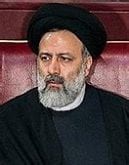Radiofarda – Iran’s influence in Iraq through proxy groups appears to be facing serious challenges as the new Prime Minister Mustafa al-Kazemi is trying to control pro-Iranian Shiite militia groups, while some shift their loyalty from Iran to Ayatollah Ali Sistani.
Until a few months ago, Iranian military officials including former and current Qods Force commanders Qassem Soleimani and Esmail Qaani used to fly to Iraq whenever they wanted and nothing could stop them as they landed in Baghdad’s Green Zone to take part in security meetings with Iraqi officials.
But all this has changed as Qaani was told in June to request a visa before travelling to Baghdad as Iraq’s new prime minister al-Kazemi refused to receive Qaani and the rest of the Iranian delegation without an entry visa.
Kazemi, the former intelligence chief of Iraq took office as Prime Minster several months after widespread violent protests in Iraq led to the ouster of his predecessor Adil al-Mahi.
Even Iran-backed groups in Iraq supported al-Kazemi as Prime Minister although they were not particularly enthusiastic, hoping that he would end the country’s economic crisis exacerbated due to the coronavirus pandemic.
Nonetheless, Kazemi’s power is limited, among other things by his meager 10 percent share in choosing his cabinet ministers, although he enjoys the backing of a sizeable contingent of Iraqi politicians.
Kurdish and Sunni parties back his measures to limit the influence of Iran-backed Shiite groups. Other Shiite groups outside the realm of Iran’s influence also call for government control over pro-Iran militia.
Last September, in a development characterized as a pro-Iranian conspiracy, the ouster of Counter-Terrorism Commander General Abd al-Wahab al-Sa’edi elicited a wave of protests in Iraq. He was a Shiite officer who was against Iran’s intervention in Iraq. He was the champion of anti-ISIS campaign in Iraq and his forces were trained by the United States. Pro-Iranian politicians obviously feared al-Sa’edi’s rising power.SEE ALSO:New Poll: Iran Losing Support of Majority in Iraq
In one of his first measures as Prime Minister, al-Kazemi reinstated al-Sa’edi as the counter-terrorism commander. Subsequently, Sa’edi’s forces attacked the pro-Iranian Hashd al-Shaabi (a Kata’ib Hizballah affiliate) in southern Baghdad and arrested 14 Hashd members.
The Iraqi government announced later that the arrests were linked to rocket attacks against government targets and bases hosting U.S. forces. Qais Khazali, the leader of Iranian proxy group Asa’ib Ahl al-Haq warned the Prime Minister to make sure there would be no attacks on pro-Iranian militia.
He warned Kazemi that “Your government is a provisional government tasked with only two missions: Holding an early election and tackling economic and health challenges.” He also warned that the Prime Minister might “lose everything” if he created another problem.
In a rare comment, Khazali said that Kazemi would never be able to stop the resistance forces’ operations against U.S. troops stationed in the country. This was one of the clearest threats by the leader of pro-Iranian militia.
The pro-Iranian militia subsequently displayed their might in the streets of Baghdad and in the Green Zone. Enraged by the manoeuvres, al-Kazemi reshuffled his security officers.
However, both levers of Iran’s influence in Iraq – the militia and the politicians in Shiite parties – are facing serious challenges. Some of the militia have distanced themselves from Hashd al-Shaabi and declared their loyalty to Ayatollah Ali al-Sistani.
Experts now say that with the establishment of a stable government in Baghdad six months after the collapse of the previous government and following the elimination of Qassem Soleimani the position of Iran’s proxy groups has been weakened.
Sources in Iraq say there has been a reduction in the militia’s attacks on U.S. forces during the past weeks and that the militia have welcomed merging into the Iraqi army as new Qods Force Commander Esmail Qaani’s popularity is nothing to be compared with Soleimani’s influence. Meanwhile, the leadership of Hashd al-Shaabi after the death of Abu Mahdi al-Muhandis who was killed alongside Soleimani remains undecided.
In the meantime, U.S. and Iraqi sides have started strategic talks that would determine U.S. forces’ future role in Iraq’s security and diversify the United States political and economic ties with Baghdad.
Iran’s parliament speaker Baqer Qalibaf, a former IRGC commander, has branded the strategic talks as “useless.” Nevertheless, Iran appears to be consolidating its position in Iraq in other areas. Two weeks ago, the Iranian Minister of Energy visited Baghdad to forge a two-year contract to export electricity to Iraq.
Iran is said to have told its proxy groups in Iraq to stop obstructing al-Kazemi’s talks with the United States while Iran sells electricity and natural gas to Iraq as long as Iraq guarantees the repayment of its debts to Iran.
 Shabtabnews In this dark night, I have lost my way – Arise from a corner, oh you the star of guidance.
Shabtabnews In this dark night, I have lost my way – Arise from a corner, oh you the star of guidance.



